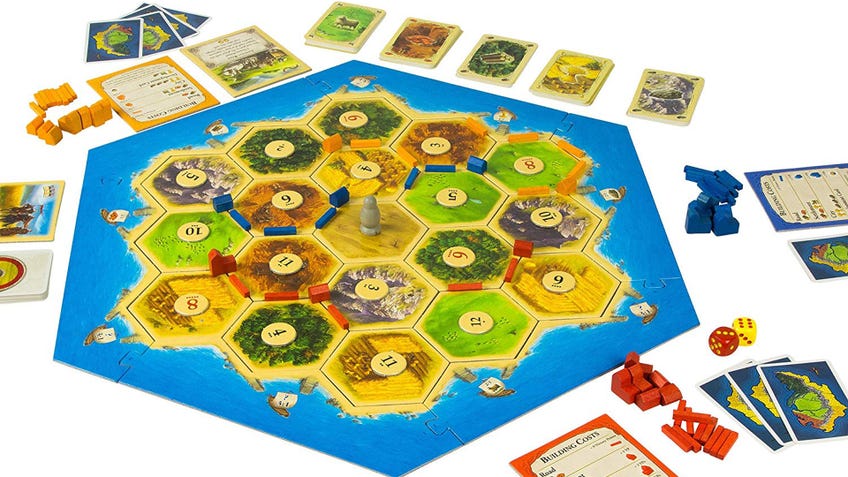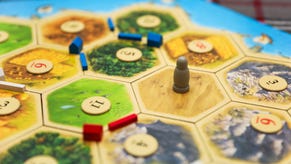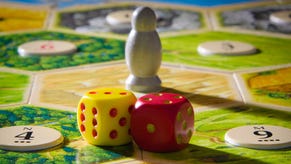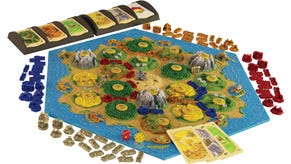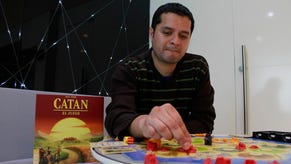10 Catan house rules that make the classic board game even more fun
Don’t settle for less.
Settlers of Catan's standard set of rules has a wonderful mix of skill and randomness. One roll of a seven could start a chain reaction that leads you to victory. That same roll could start an equally as decisive chain that lands you in fourth place. It's no mystery why the game's been translated into 30 different languages.
People have been playing so much that standard Catan isn't enough for them anymore. They've created house rules that alter the game in big and small ways. None of them change the fundamental feeling that Catan brings to the table, but they do offer a nice twist on it.
Catan house rules
- Tiles start facing down: Flip resource tiles upside-down while placing starting settlements.
- Bribery: Dissuade enemies from robbing you by offering resources voluntarily.
- King of the Hill: Keep your lead for one full turn after you reach max victory points.
- Everyone gets one re-roll: Each player gets one chance re-roll at any point.
- The Bridge: Build a super-bridge across one resource tile.
- Discard desert: Scrap the desert in favour of an additional resource tile.
- Roll double, roll again: Roll again if you roll two of the same number.
- Robin Hood robber: Robbers can't steal from players with fewer than two victory points.
- Crime and Punishment: Change how the robber works to make Catan more or less competitive.
- Credit: Trade with resources you don't have.
Some custom Catan rules make the game more welcoming to newcomers by lessening the randomness factor. Others up the competition by giving players additional tools to expand their settlements around one another. No matter what approach you take during your board game nights, here are ten house rules to check out that make Settlers of Catan even more fun.
1. Tiles start facing down
Flip resource tiles upside-down while placing starting settlements
The most important part of Catan is the first two turns. That's when you place your first two settlements and roads - it's a moment that can sometimes decide who wins the game an hour before it's finished. This custom rule has you place all the tiles facedown so you can't see what resources are on them. The number tokens stay facing up so you'll know what dice roll you're betting on. You won't know if you've placed that bet on a desert tile, though.
This adds even more randomness to an already luck-heavy game. You could choose a six or eight number token, the numbers with the highest probability of hitting, but on a resource tile that doesn't meld with your favourite victory point-earning strategy.
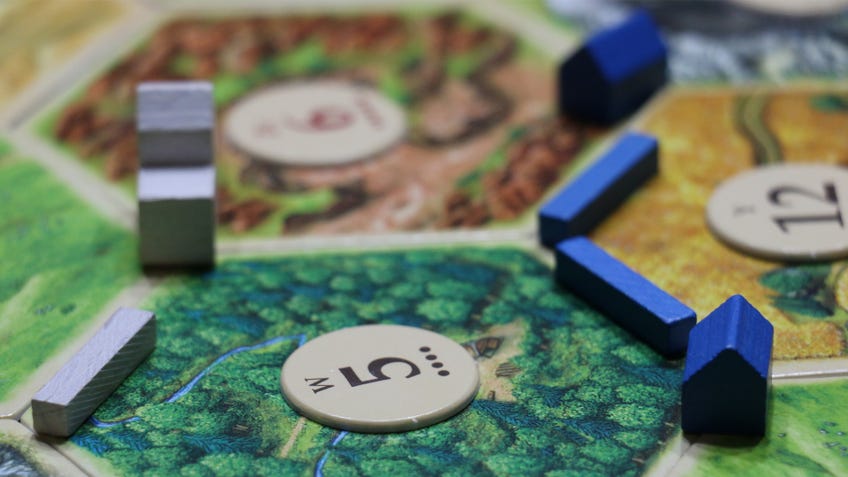
2. Bribery
Dissuade enemies from robbing you by offering resources voluntarily
Being robbed of a resource by another player after they roll a seven, especially when it's the last resource you needed to build a city, is a horrible feeling in Catan and there aren't many ways to prevent it. Bribery, where you can try and convince a player not to rob you by paying them off, is a house rule that gives you one.
It adds another layer of complexity to late-game stalemates. A player could target you to steal wheat and block your wood production, but you could convince them to take a few stone instead. Everybody wins. Bribes, once accepted, have to be respected - although that doesn't mean you couldn’t accept a bribe, then play a knight afterwards and steal from them anyway. It's all about mind games when trying to secure victory points.
This rule could be reversed and used to extort resources from players on the table. It's a good idea to set ground rules on who can do what when a seven is rolled if you decide to implement this rule.
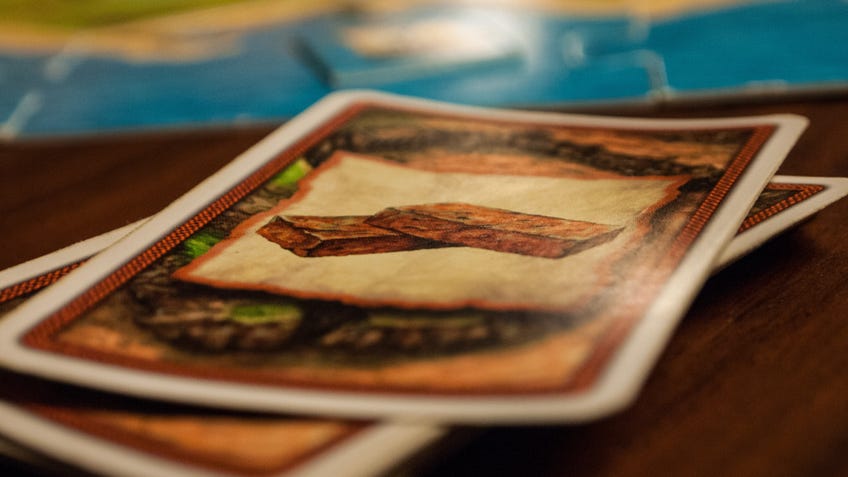
3. King of the Hill
Keep your lead for one full turn after you reach max victory points
The usual game of Catan ends once one player earns ten victory points. The King of the Hill rule raises that limit and forces players to defend their crown.
The amount of victory points can be changed to whatever number you'd like, although you'll need more game pieces if you want to build more settlements and roads. Anything between ten and 15 will make games significantly longer.
The lucky player that reaches the designated goal first becomes a king. They need to then defend their crown for a whole turn. This gives other players a chance to steal the longest road, build a larger army or even draw a development card and gain an extra victory point in order to squeak out a win by stealing the crown.
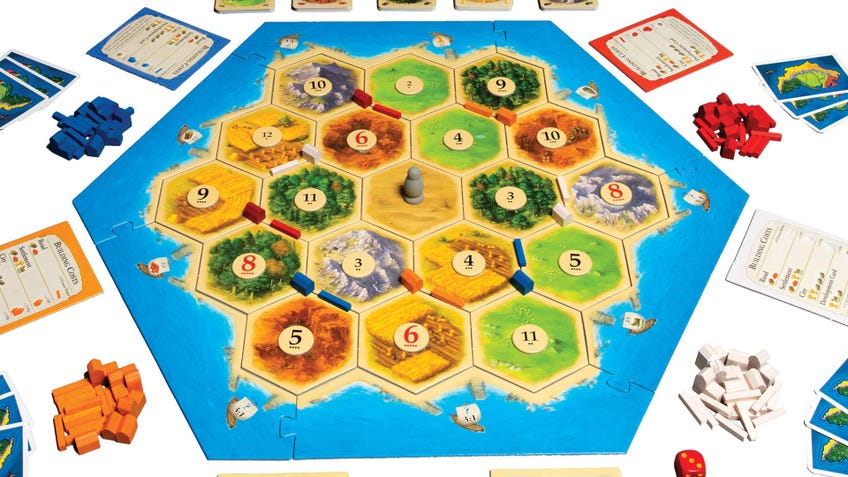
4. Everyone gets one re-roll
Each player gets one chance re-roll at any point
This is a simple, yet crucial, change to the game. Everyone gets one opportunity to reroll a single dice roll at a time of their choosing. Like a chance category in Yahtzee, this can be used at any time in the game in order to give you another chance at rolling the resource you need. It can help secure a win at the tail end of a match or used at the beginning to establish a head start.
5. The Bridge
Build a super-bridge across one resource tile
The Bridge rule opens up the possibilities of how long a Longest Road can be. It also means that you can escape from a small section of the board if you get trapped there by another player early on. This house rule adds a new type of road that stretches across a resource tile, connecting bridges that are on the other side.
"It's a bridge that basically is just an option to prevent getting completely cut-off on one side of the board and leading to blow out games," said Art Griepp, the player who originally created the rule in a BoardGameGeek forum post.
The bridge costs six wood and six brick - six times the normal cost of a road. You can only build it off your current roads and it is not added to the count for longest road. Like other roads, the bridge isn't affected by another player building a settlement, upgrading it to a city or placing the robber. You can add in the bridge by giving one to every player or by limiting the entire table to one bridge.
6. Discard desert
Scrap the desert in favour of an additional resource tile
The desert token is a boring tile in most games of Catan. While it can add a risk factor to playing a settlement on the adjacent resource, it often is avoided until later in the game. This custom rule completely removes it from the board in favour of a low probability tile with a different resource. The table needs to agree on what resource it'll be - a majority vote decides.
7. Roll double, roll again
Roll again if you roll two of the same number
When you roll two of any number you get to roll again. Everyone collects the resources from both rolls. It's another simple change that will speed games up, add a bit of excitement to rolls and give more resources to players over the course of a game.
A number of small dice-related adjustments like this one can be made to change up how a Catan game feels. Another rule merges the 12 and two, meaning you'll get a resource for both if either of them lands. This opens up a risky opportunity for players to bet on the rolls with the lowest chance of landing.

8. Robin Hood robber
Robbers can't steal from players with fewer than two victory points
The robber is an essential part of the game. It's often the easiest way to help even the odds between you and whoever has the lead. It can also be a crippling move against players who fall behind, making the game frustrating. This house rule prevents players with two visible victory points from having their resources blocked by the robber.
"This rule keeps the group's [victory points] fairly close, and makes for a tighter game overall," said Camo Coffey, one player who's tried this rule out, on BoardGameGeek. "One problem with Settlers we have identified is that it can be rather too easy for one player to get a runaway lead in production, thereby receiving more resources, so building more stuff, and so on, until [they’ve] won without any real competition."
The player who rolled the seven can still steal from those players, but this encourages them to follow in the footsteps of the man in tights and steal only from the rich. It's a good way to take some of the negativity that can come with the stealing mechanic.
9. Crime and Punishment
Change how the robber works to make Catan more or less competitive
Catan’s robber is a dealbreaker for some players who don't want to steal from others. It's easy to adjust how the robber works with some houseruling in order to make games either more casual or competitive.
First off, you completely remove the robber and replace and replace the desert tile with a seven number token. Every time a seven is rolled all players get the resource from that tile. Players will need to decide what that tile will be at the beginning of the game. This is a way to create a relaxed and casual session of Catan.
For something more competitive you can make the robber even stronger: when played on a tile it prevents all players from building settlements, cities and roads on all the points around it.

10. Credit
Trade with resources you don't have
Everyone likes to spend money they don't have, right? This rule lets you trade resources you don't have yet. It's a gamble for both players involved, but more so for the one giving resources away.
You can offer up your next stone in exchange for a wheat, but you won't be able to renege on the trade after the fact. You may not roll a stone for three or four rounds, and once you do you’re obligated to surrender it to your trade partner. Your group will need to decide how much credit a player can take out, but it's safe to limit it to one or two resources maximum.
